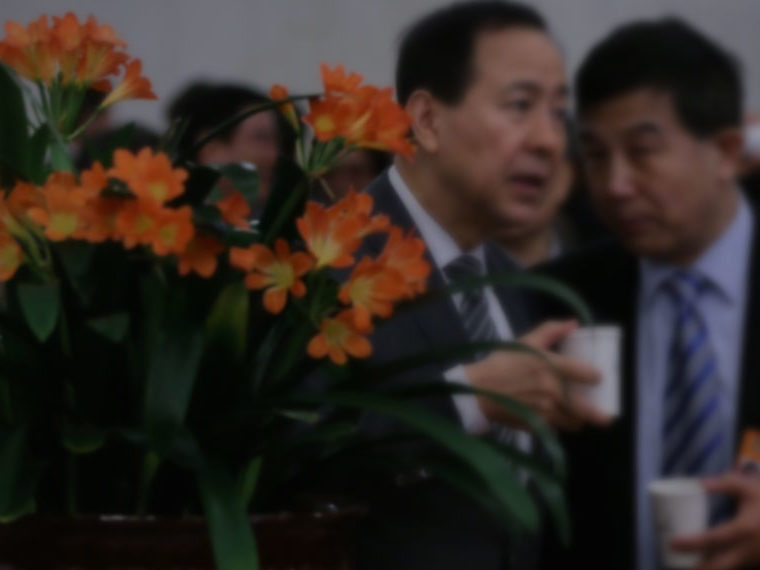Examining executive pay tied to revenue growth to identify any correlation
If you were an investor and owned stakes in the two dominant widget-makers, you’d be aghast to see one of them start a price war and undermine profits across the industry. Competiton in widgets, for you, is pretty much a zero-sum game, and you’d prefer restrained price competition and fat profit margins.
In theory, you’d thus oppose any management compensation system at the widget-makers that rewarded revenue maximization — certainly at the expense of margins.
Are Big Investors Pushing Anti-Competitive Policies?
With ownership consolidation of major companies growing — a handful of large institutional investors hold big stakes not just in individual companies but across industries — the potential for shareholders to impose anti-competitive practices on company management has become a significant topic in antitrust circles.
Opt In to the Review Monthly Email Update.
At various times BlackRock, State Street and Vanguard have been among the largest shareholders in the nation’s six largest banks, and its three largest airlines. Both industries have been marked by significant consolidation. Huge bank mergers during the financial crisis of 2008-09 helped the government avoid liquidating massive institutions but also gave the surviving players enormous market shares. Likewise, after a spate of bankruptcies around the same time, airlines were allowed to merge, reducing competition.
In other industries as well, institutional investors now hold the vast majority of U.S. public company shares.
Studies found, for example, correlations between common ownership and higher banking and airline ticket fees. But there’s an ongoing search for a plausible way shareholders could have indirectly influenced those prices. (It’s essentially illegal for one of them to get directly involved in pricing discussions.)
And executives in both industries hardly needed outsiders to tell them they could price more aggressively. Airline executives have bemoaned price wars for decades. And bankers have kicked themselves for not extracting bigger profits from the lush franchises they had owned as the industry deregulated. So, a correlation doesn’t necessarily mean investors were influencing these practices.
Common Ownership, Executive Compensation and Competition
A working paper by University of Pennsylvania’s Matthew Bloomfield and UCLA Anderson’s Henry Friedman and Hwa Young Kim, a Ph.D. student, examines executive pay schemes at companies in search of a possible direct link between investors’ actions and company competitive behavior.
“If common ownership by institutional shareholders is going to affect competition, it should operate through a channel that institutional investors have some control or influence over,” Friedman notes in an email exchange. “Executive compensation is such a channel.” The researchers examined pay policies at some 1,500 companies and found no correlation between cross ownership and use of pay schemes that stress revenue growth.
Could the lack of correlation be because of common owners choosing firms that don’t benefit from revenue-based pay? To get around this potential selection problem, the authors also look for changes in pay policies following changes in common ownership driven by mergers of asset managers. They find no correlation.
“The evidence is not consistent with common ownership affecting compensation in a way that would dampen competition, i.e., by reducing revenue-based pay,” Friedman says. “It does not seem to be for lack of power, since institutional cross-owners do not systematically oppose pay plans in general or vote differently depending on whether pay plans include/exclude revenue-based pay.”
The study also tests use of relative performance evaluations, which reward managers for outperforming industry competitors. They found “zero association” between common ownership and the level of use of these competition-inducing pay schemes.
Large shareholders have a variety of channels for affecting corporate behavior, of course. An investor can directly recommend action to company management (so long as it’s legal); it can make public statements about desired actions, an approach often chosen by activist investors; and on certain matters, including executive pay plans, investors can vote their shares.
So, beyond looking for correlations between cross ownership and pay plans, the researchers also examined voting patterns. They found no evidence that shareholders of multiple industry players systematically oppose pay plans that motivate aggressive competition. Their preferences for particular executive compensation plans were the same as those of shareholders without cross-industry holdings, according to the findings.
Narrowing the examination to specific industries, or firms of a certain size, to look for less widespread links to common ownership and competition, the authors again found no correlations.
“In sum, across a battery of empirical approaches, we find no evidence to support the notion that common owners attempt to mitigate product market competition by altering executive incentives,” the authors write.
Featured Faculty
-
Henry L. Friedman
Associate Professor of Accounting
About the Research
Bloomfield, M., Friedman, H.L. and Kim, H.Y. (2021). Common ownership, executive compensation, and product market competition. http://dx.doi.org/10.2139/ssrn.3936918






